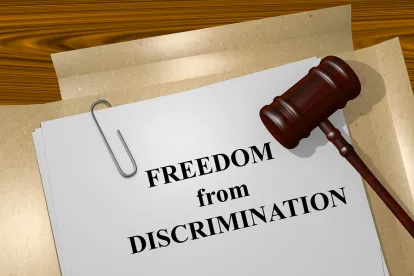Philadelphia is poised to strengthen the enforcement powers of the Philadelphia Commission on Human Relations (“PCHR”), the City’s primary civil rights and anti-discrimination agency. Under legislation that passed City Council on May 8, 2017, the PCHR would have the authority to issue cease and desist orders—closing a business’s operations for an unspecified length of time—if the agency determines the business has engaged in “severe or repeated violations” of the Philadelphia Fair Practices Ordinance (“the Ordinance”). The authority to shut down a business’s operation is an unheard of remedy for employment related civil rights violation and—given the significant ramification for employers— it is critical for Philadelphia employers to be aware of the potential consequences of the PCHR’s enhanced powers for their business operations
The Ordinance prohibits discrimination based on age, ancestry, color, disability, ethnicity, gender identity, sexual orientation, national origin, race, religion, and sex. The Ordinance is enforced by the PCHR. The PCHR’s enforcement powers are limited to traditional remedies for employment discrimination, including back pay, emotional distress damages, punitive damages and orders to eliminate or redraft a policy found to be discriminatory. Prior to using its enforcement powers, the PCHR encourages parties to mediate their dispute or to reach a voluntary settlement.
In response to concerns about a pattern and practice of racial discrimination at bars and restaurants in the gayborhood—a neighborhood in Philadelphia that derives its name from its historic association with LGBTQ residents—Councilman Derek Green proposed legislation that would strengthen penalties against Philadelphia businesses found to discriminate against their employees, as well as against tenants or customers. The bill gives the PCHR the authority to order a business to cease operations for an undefined “period of time” when the PCHR has issued a finding that the business has engaged in severe or repeated violations of the Ordinance and the business has refused to resolve the case by mediation or settlement. While Rue Landau, executive director of the PCHR, provided some solace to employers by stating that “it would only be implemented under egregious circumstances after a full hearing by the PCHR,” he also stated that “[t]he law sends a strong message to business that the City will not tolerate discrimination … .”
The bill, which Philadelphia’s Mayor signaled he will sign into law, certainly sends a strong message. The authority to shut down the operations of a business as a remedy for employment related civil rights violations is unprecedented. No other employment civil rights agency has this type of authority. Given the unique power being vested in the PCHR and its lack of any precedent, it is likely that the measure will be challenged in court. However, until that happens, Philadelphia businesses need to be aware that a PCHR investigation can lead to serious consequences, particularly if the PCHR believes a pattern of discrimination is present.



 />i
/>i
